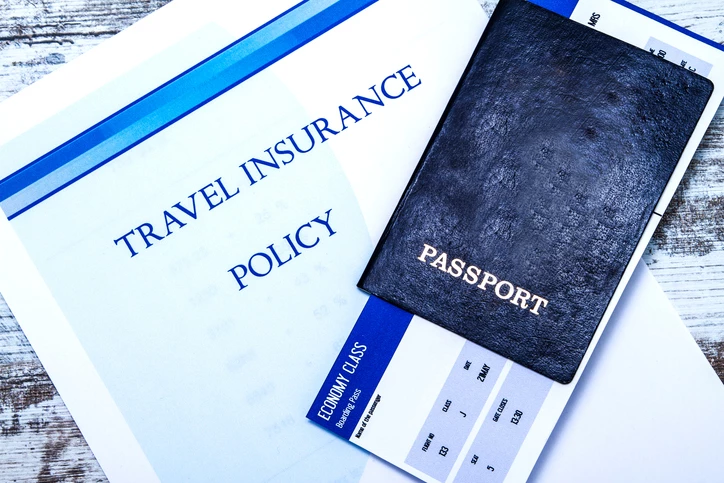16/06/2019 | Category: Travel Insurance

We all need a holiday from time to time. Holidays are the perfect way to escape from the norm, enjoy a change of scenery and spend time with friends and family. They let you do as little or as much as possible. Whether you’re relaxing on a beach or trying out the latest high-octane adventure sport, travelling is good for the mind, body and soul.
In fact, a study by scientists in the US found that just six days away can help decrease stress, boost the immune system, and reduce the risk of developing conditions such as dementia and depression. The research also revealed that some of these benefits can last for a month.
But when you’re living with a long-term medical condition, the idea of travelling can feel like more of a challenge than a pleasure.
If you do have a long-term medical condition, you’re not alone. According to research from The King’s Fund, at least 15 million people in the UK are living with at least one ongoing condition.
But travelling with a pre-existing medical condition doesn’t mean your holiday will be any less enjoyable. If you plan well in advance, you can avoid sleepless nights and jet off with confidence.
Here are some of the most important things to remember to help you stay safe when travelling with a medical condition.
1 Know your facts
The first thing you need to do is research. No doubt you are something of an expert on the medical condition you have, but it won’t hurt to expand your knowledge even further.
Many people worry that it is dangerous to travel with a heart condition or other medical condition. However, most people with a pre-existing condition are able to travel, as long as they feel well and their condition is stable.
One area you need to research is the amount of medication you can take into your chosen country. Certain countries have regulations and restrictions on the types and quantities of medicine that can be brought in.
Check with the embassy of the country you’re visiting before you make any holiday plans. You can find embassy contact information on Gov.uk or find out more about travelling with prescribed medication.
2 Speak with your GP
Before you start looking for travel insurance for medical conditions, book an appointment with your GP to discuss where you’re planning to go, how you’ll get there and what you plan to do once you’ve arrived. Your doctor will be able to advise you on the risks and possibly suggest alternative, less risky options (for example, cruising rather than flying).
You should also make a note of all your current conditions and the medication you’re taking so you can give your insurer comprehensive, accurate information and get the right travel insurance for medical conditions. This will reduce the risk of having your insurance invalidated if something were to go wrong while you’re abroad.
3 Prepare for air travel
Some medical conditions may stop you from flying at certain times. For example, the NHS and Stroke Association advise not to fly for a minimum of two weeks after having a stroke. In more severe cases, patients are advised to avoid flying for three months.
Another example is deep vein thrombosis (DVT). Up to one in every 1,000 people in the UK is affected by DVT each year. People with the condition can reduce the risk by regularly stretching their arms and legs, drinking plenty of water and walking around the cabin as much as possible.
It’s a good idea to get a letter from your GP about your condition and any medication or equipment (e.g. a pacemaker) you will be travelling with. Once at the airport, speak with airline check-in staff, security staff and cabin crew so they can get everything in place to help you travel safely.
4 Carry your medical information with you
You may have a medical condition that requires you to wear a medical alert bracelet, but even if you don’t, it’s important to carry something that identifies your condition.
Make sure to include information such as your GP’s contact details, any health insurance information, details of your specialist travel insurance, specifics about your medication and doses, plus a list of allergies and/or current illnesses.
All this information can be printed onto a small card. Carry more than one so you have spares if needed. If at any point you are unable to speak for yourself, these details will tell a medical professional everything they need to know to give you the medical attention you require.
5 Pick a destination that’s right for you
The destination you choose can make your holiday even more enjoyable. For example, choosing accommodation that is close to amenities, avoiding hilly or high-altitude locations, or steering clear of countries which are either very hot or very cold will make holiday life easier.
You might want to think about an all-inclusive resort to keep things simple, or booking with a provider that specialises in trips for people with medical conditions.
Getting the right travel insurance
When looking for travel insurance for medical conditions, be sure to declare all past and present health problems (you can get this information from your GP). If you fail to declare a condition at this stage, it could result in a claim being refused. Check the policy covers you for your specific condition and any emergency treatment or unexpected medical attention.
It is also worth getting a European Health Insurance Card (EHIC). It entitles you to free or reduced-cost medical treatment in Europe. However, do remember that an EHIC card is not a substitute for travel insurance and will no longer be valid when the UK leaves the EU, so always have travel insurance in place before you go anywhere.
Insurance Choice is a specialist in travel insurance for medical conditions. Our team of experts know the challenges you face when looking for the right cover and we will do everything we can to ensure you get the right cover without the stress.
